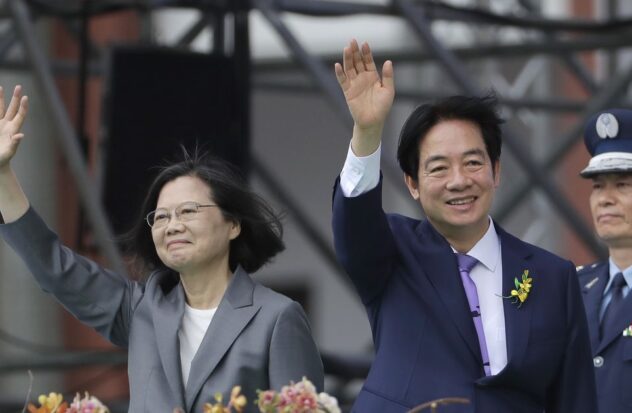Beijing– China branded as a “confession of the independence of Taiwan” the assumption speech of the President Lai Chin-te and threatened “retaliation” against the island considered by Beijing as a rebellious province. That speech, delivered on Monday, “can be described as a true confession of Taiwan’s independence,” said the Chinese Office of Taiwanese Affairs.
“China “will retaliate to punish (the island’s political authorities) for collusion with outside forces in their provocations in favor of ‘independence,'” he added.
China attacks Taiwan and the US
Shortly before, the Chinese communist government criticized the congratulatory message sent to Lai by the head of US diplomacy, Antony Blinken, who praised the Taiwanese people for “demonstrating the strength of their robust and resilient democratic system.”
In his inauguration speech, Lai urged China to end political and military “intimidation” against Taiwan and to “maintain peace and stability in the Taiwan Strait and the region.”
He also stated that a “glorious era had arrived for Taiwan’s democracy” and thanked citizens for “rejecting the influence of external forces” and “for firmly defending democracy.”
Taiwan and China have been de facto separated since 1949, when the communists won the civil war against the nationalists, who equipped themselves on the island.
Taiwan’s new president urges China to stop bullying
Taiwan’s new president, Lai Ching-te, said in his inaugural speech on Monday that he wants peace with China and urged the Asian giant to stop its military threats and intimidation over the self-ruled island, which Beijing claims as part of its territory.
Lai vowed “not to provoke or give in” to Beijing and said he seeks peace in his relations with China. However, he stressed that the island’s democracy is determined to defend itself “in the face of China’s many threats and infiltration attempts.”
Lai’s Democratic Progressive Party does not seek independence from China, but maintains that Taiwan is already a sovereign nation.
Lai, 64, succeeds Tsai Ing-wen, who ruled Taiwan through eight years of economic and social development despite the COVID-19 pandemic and growing Chinese military threats. Beijing views Taiwan as a rebellious province and has increased its threats to annex it by force if necessary.
Lai is seen as an heir to Tsai’s progressive policies such as universal healthcare, support for higher education and support for minorities, including making Taiwan the first place in Asia to recognize same-sex marriages.
In his inaugural speech, Lai promised to strengthen Taiwan’s social coverage and help the island advance in fields such as artificial intelligence and clean energy.
Lai, who was vice president in Tsai’s second term, was more combative early in his career. In 2017 he described himself as “a pragmatic worker for Taiwan independence.”, prompting criticism from Beijing. He has since softened his position and now supports maintaining the current situation in the Taiwan Strait and the possibility of talks with Beijing.
Thousands of people gathered outside the Presidential Office Building in Taipei for the inauguration ceremony. Wearing celebratory hats, they watched the swearing-in on giant screens, followed by a military parade and colorful performances by traditional dancers, opera artists and rappers. Military helicopters flew in formation carrying the Taiwanese flag.
Lai accepted congratulations from other politicians and delegations from the 12 countries that maintain official diplomatic ties with Taiwan, as well as politicians from the United States, Japan and several European states.
Source: AFP/AP


